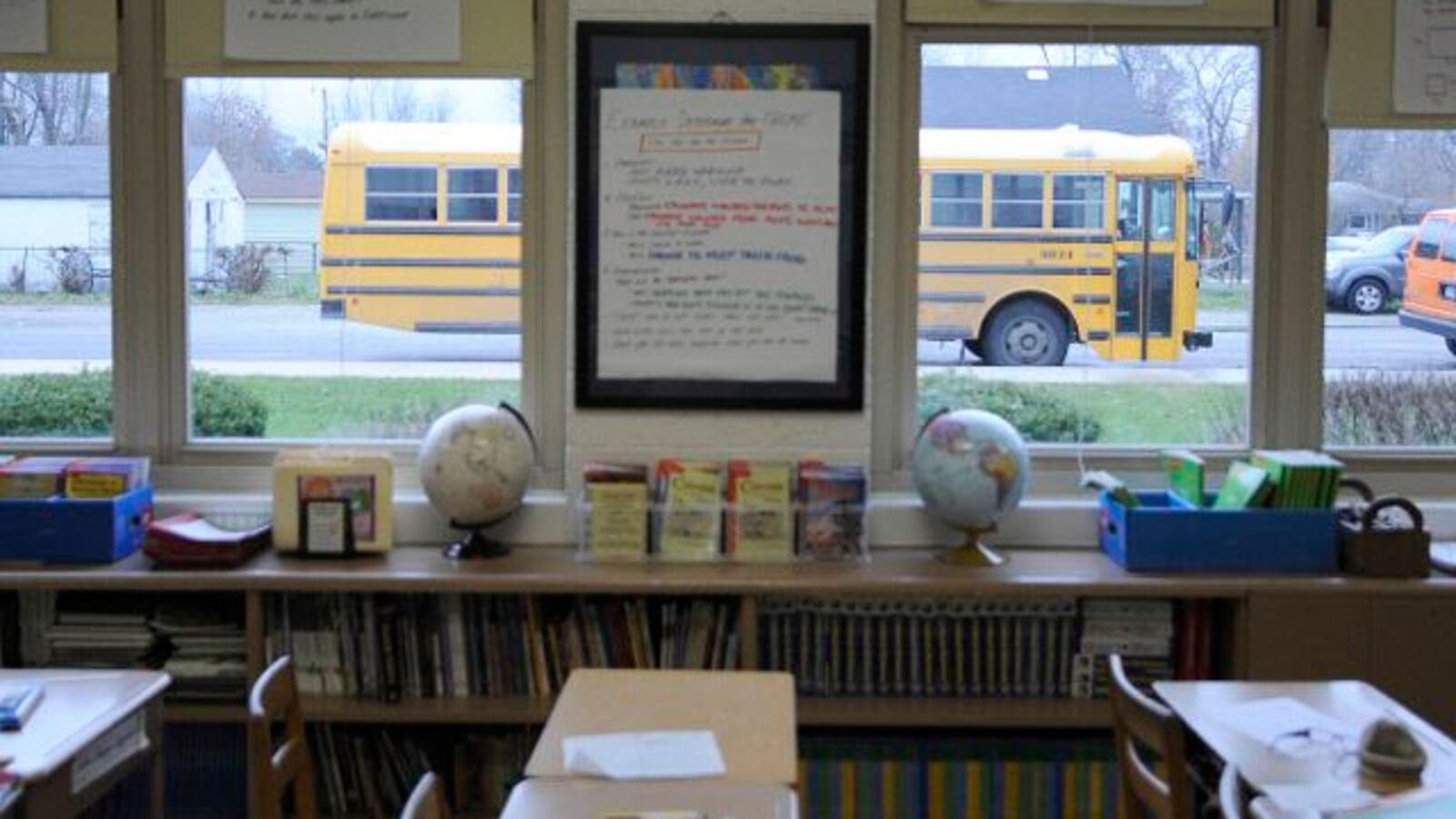Almost every Marion County public school district would’ve seen its A-F grade drop in 2015 thanks to falling ISTEP scores before lawmakers stepped in last month to keep grades from going down.
The Indiana State Board of Education is expected to formally approve grades for school districts Wednesday, most of which will remain the same as last year. The results for districts are similar to what Indiana schools serving grades 3-8 saw when school A-F grades were released last month: most stayed the same only because a new state law was just approved to protect them.
The Indiana State Board of Education is expected to approve approve the grades for districts Wednesday. Gov. Mike Pence signed Senate Bill 200, which allows schools and districts to keep their 2014 grades unless the 2015 grades were higher, late last month after it was rushed through the the House and Senate over just a few weeks. Usually bills take a couple of months to pass both houses.
Lower grades across the board were the result of both more rigorous academic standards the state adopted last year and the first administration of a new, more difficult state ISTEP test. Statewide the 53.5 percent of students who passed ISTEP was down 22 percentage points in 2015 over the prior year.
Speedway was the only Marion County school district that would have earned an A-grade in 2015. With the “held harmless” grades from 2014, Franklin, Perry and Lawrence townships will now be rated A, rather than C. Indianapolis Public Schools will go on record with a D-grade for 2015, even though its ISTEP scores would have otherwise resulted in an F.
Besides district grades, the state board will address the performance of state takeover schools. It put off a couple of other decisions that were originally on its agenda.
Manual High School, Howe High School and Donnan Middle School, all former IPS schools, are all in their fourth years of state takeover. The schools have been run by Florida-based Charter Schools USA since 2012, when long streaks of low test scores led the state to take control.
The state board can order changes for, or take over, schools after six straight F-grades. After a change in state law last year, schools that earn their first F-grades in 2016 can face state takeover in just four years.
After five years of takeover, the board is required to make a decision. Some of those options are: It can return the school to be managed by its former school district; it can require the school apply for a charter; or it can allow the school to establish a partnership with another organization, such as its home district or a charter school. IPS already has partnerships along these lines with its Innovation Network Schools and schools in “transformation zones” that are run by the district, but set apart from schools that aren’t struggling.
Before the board can take action, it must hold public hearings. On Wednesday the board will vote on when to schedule those hearings and how they will be run.
Schools that have received four consecutive F-grades must be reviewed by a team made up of representatives from the community, other schools, school boards or outside experts. In Marion County, three IPS schools — the middle school grades at Northwest High School (which technically qualify as a separate school), School 42, and School 44 will get reviews. The state board is expected to vote on how the reviews will take place and their timelines.
Board members will also hear an update on new requirements under the federal Every Student Succeeds Act, which the U.S. Congress approved to replace the No Child Left Behind law last year.
Because of scheduling conflicts, the board will not discuss the latest study of the validity of the 2015 ISTEP test, which was plagued by design problems and scoring errors. Key lawmakers have called for a rescore last year’s test. Although details aren’t yet available, the state board’s testing director Cynthia Roach said at last month’s meeting that study shows the scores hold up. There wasn’t evidence to suggest they were substantially inaccurate, she said.
State Board spokesman Marc Lotter said the validity study, along with updates on the state’s new A-F school grade model, will be postponed until a special February meeting, which has not yet been scheduled.

